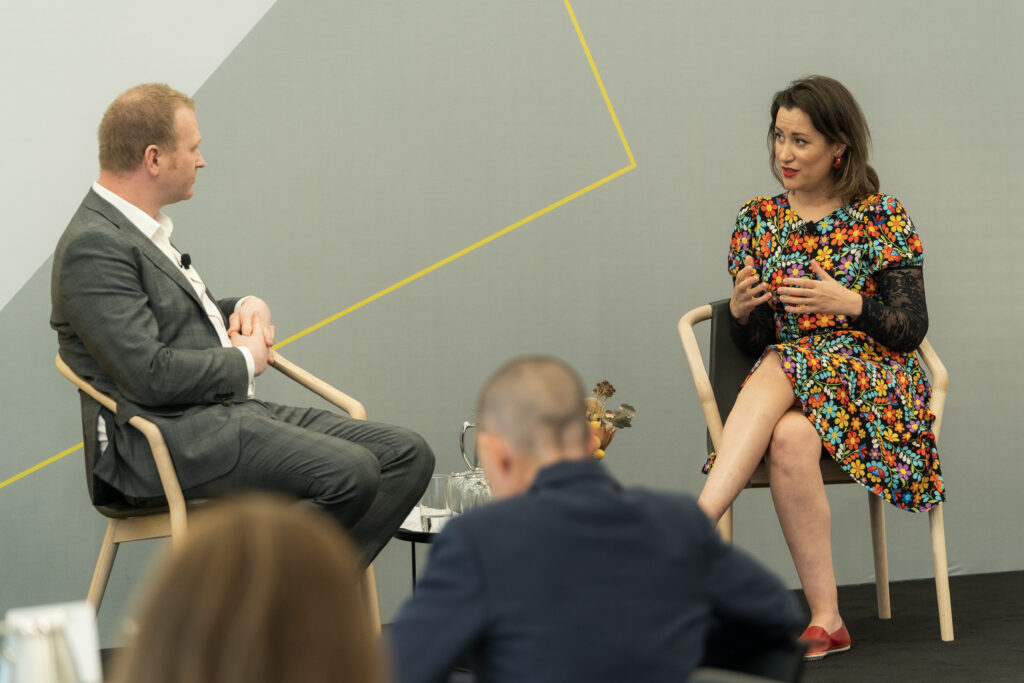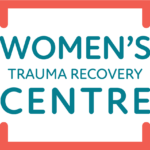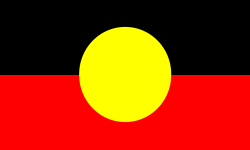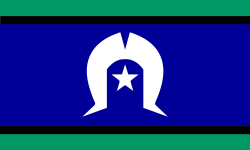Illawarra Women’s Trauma Recovery Centre a successful recipient of CBA’s Next Chapter Innovation to respond to financial abuse recovery
Published November 16th 2023
Illawarra Women’s Trauma Recovery Centre a successful recipient of CBA’s Next Chapter Innovation to respond to financial abuse recovery
Published November 16th 2023

Image: Lula Dembele, Director of Lived Experience & Advocacy at the Illawarra Women’s TRC, speaking on stage at the Next Chapter Innovation Think Tank.
The Illawarra Women’s Trauma Recovery Centre is pleased to be a successful recipient of Next Chapter Innovation, which forms part of CommBank Next Chapter, and deliver an innovative response to financial abuse recovery.
The Centre will open in 2024 and co-design a Pathways to Financial Security Framework to define what financial security means from a lived experience perspective after experiencing domestic and financial abuse, and what steps are needed to establish and build long-term financial security.
At the Next Chapter Innovation Think Tank held at CommBan’s offices in South Eveleigh earlier this week, Lula Dembele, the Centre’s Director of Lived Expertise & Advocacy, said “We are thrilled to be partnering with CBA through Next Chapter Innovation to help create a way forward for women to re-establish financial security following financial abuse. Too many women remain trapped in abusive relationships or face poverty after experiencing economic abuse and each have different challenges to rebuild their lives. Through our Pathways to Financial Security project we will work with women and partners to understand what support they need and how to access it.”
The announcement of Next Chapter recipient announcement comes as Commonwealth Bank revealed it is blocking 400,000 abusive messages each year being sent to vulnerable female customers with a tiny payment attached, a form of coercive control by men that can be a precursor to domestic violence.
But this alarming number underestimates the extent of financial abuse taking place in the banking system, as a growing number of perpetrators circumvent the banks’ payment-blocking technology to conduct more nuanced intimidatory behaviour.
Not limited to intimidating and harassing messages, financial abuse can escalate to limiting access to cash, bank accounts or benefits; refusing to provide a partner with access to sufficient funds to run the household or diverting their wages to this; forcing the victim into taking out loans or credit cards in their name; or stopping a partner from working or studying.
CBA and Deloitte Access Economics research released last year found more than 600,000 Australians had experienced financial abuse in 2020, costing victims and the economy $10.9 billion.
CBA’s Next Chapter initiative, formalised in 2020, announced on Wednesday new grants of between $50,000 and $200,000 to five women’s support groups, including Illawarra Women’s Health Centre, to link them to expertise in the bank to support their work.
“This demonstrates what can be done when industry partners step up and understand ending domestic violence is everyone’s responsibility,” said Lula Dembele. “Using technology for the long-term reduction of this type of violence, and to signal to the community and beyond, that these are unacceptable ways of interacting with people – they are crimes – can start to have impact on the ongoing detrimental impacts on victims.”
Moo Baulch, chair of Our Watch, said, “there are probably hundreds of thousands of people living in fear, and the hidden impact of coercive control, including financial abuse, is really prevalent and can have life long and intergenerational consequences for families, and cause irreparable harm. Which is why it is important we are having this conversation.”
—
Anyone worried about their finances because of domestic or family violence or coercive control can contact the Next Chapter Team on 1800 222 387 for support – no matter who they bank with.
If you or someone you know is experiencing domestic or family violence, call 1800RESPECT (1800 737 732) or visit www.1800RESPECT.org.au.
In an emergency or if you’re not feeling safe, always call 000.

Image: Lula Dembele, Director of Lived Experience & Advocacy at the Illawarra Women’s TRC, speaking on stage at the Next Chapter Innovation Think Tank.
The Illawarra Women’s Trauma Recovery Centre is pleased to be a successful recipient of Next Chapter Innovation, which forms part of CommBank Next Chapter, and deliver an innovative response to financial abuse recovery.
The Centre will open in 2024 and co-design a Pathways to Financial Security Framework to define what financial security means from a lived experience perspective after experiencing domestic and financial abuse, and what steps are needed to establish and build long-term financial security.
At the Next Chapter Innovation Think Tank held at CommBan’s offices in South Eveleigh earlier this week, Lula Dembele, the Centre’s Director of Lived Expertise & Advocacy, said “We are thrilled to be partnering with CBA through Next Chapter Innovation to help create a way forward for women to re-establish financial security following financial abuse. Too many women remain trapped in abusive relationships or face poverty after experiencing economic abuse and each have different challenges to rebuild their lives. Through our Pathways to Financial Security project we will work with women and partners to understand what support they need and how to access it.”
The announcement of Next Chapter recipient announcement comes as Commonwealth Bank revealed it is blocking 400,000 abusive messages each year being sent to vulnerable female customers with a tiny payment attached, a form of coercive control by men that can be a precursor to domestic violence.
But this alarming number underestimates the extent of financial abuse taking place in the banking system, as a growing number of perpetrators circumvent the banks’ payment-blocking technology to conduct more nuanced intimidatory behaviour.
Not limited to intimidating and harassing messages, financial abuse can escalate to limiting access to cash, bank accounts or benefits; refusing to provide a partner with access to sufficient funds to run the household or diverting their wages to this; forcing the victim into taking out loans or credit cards in their name; or stopping a partner from working or studying.
CBA and Deloitte Access Economics research released last year found more than 600,000 Australians had experienced financial abuse in 2020, costing victims and the economy $10.9 billion.
CBA’s Next Chapter initiative, formalised in 2020, announced on Wednesday new grants of between $50,000 and $200,000 to five women’s support groups, including Illawarra Women’s Health Centre, to link them to expertise in the bank to support their work.
“This demonstrates what can be done when industry partners step up and understand ending domestic violence is everyone’s responsibility,” said Lula Dembele. “Using technology for the long-term reduction of this type of violence, and to signal to the community and beyond, that these are unacceptable ways of interacting with people – they are crimes – can start to have impact on the ongoing detrimental impacts on victims.”
Moo Baulch, chair of Our Watch, said, “there are probably hundreds of thousands of people living in fear, and the hidden impact of coercive control, including financial abuse, is really prevalent and can have life long and intergenerational consequences for families, and cause irreparable harm. Which is why it is important we are having this conversation.”
—
Anyone worried about their finances because of domestic or family violence or coercive control can contact the Next Chapter Team on 1800 222 387 for support – no matter who they bank with.
If you or someone you know is experiencing domestic or family violence, call 1800RESPECT (1800 737 732) or visit www.1800RESPECT.org.au.
In an emergency or if you’re not feeling safe, always call 000.



